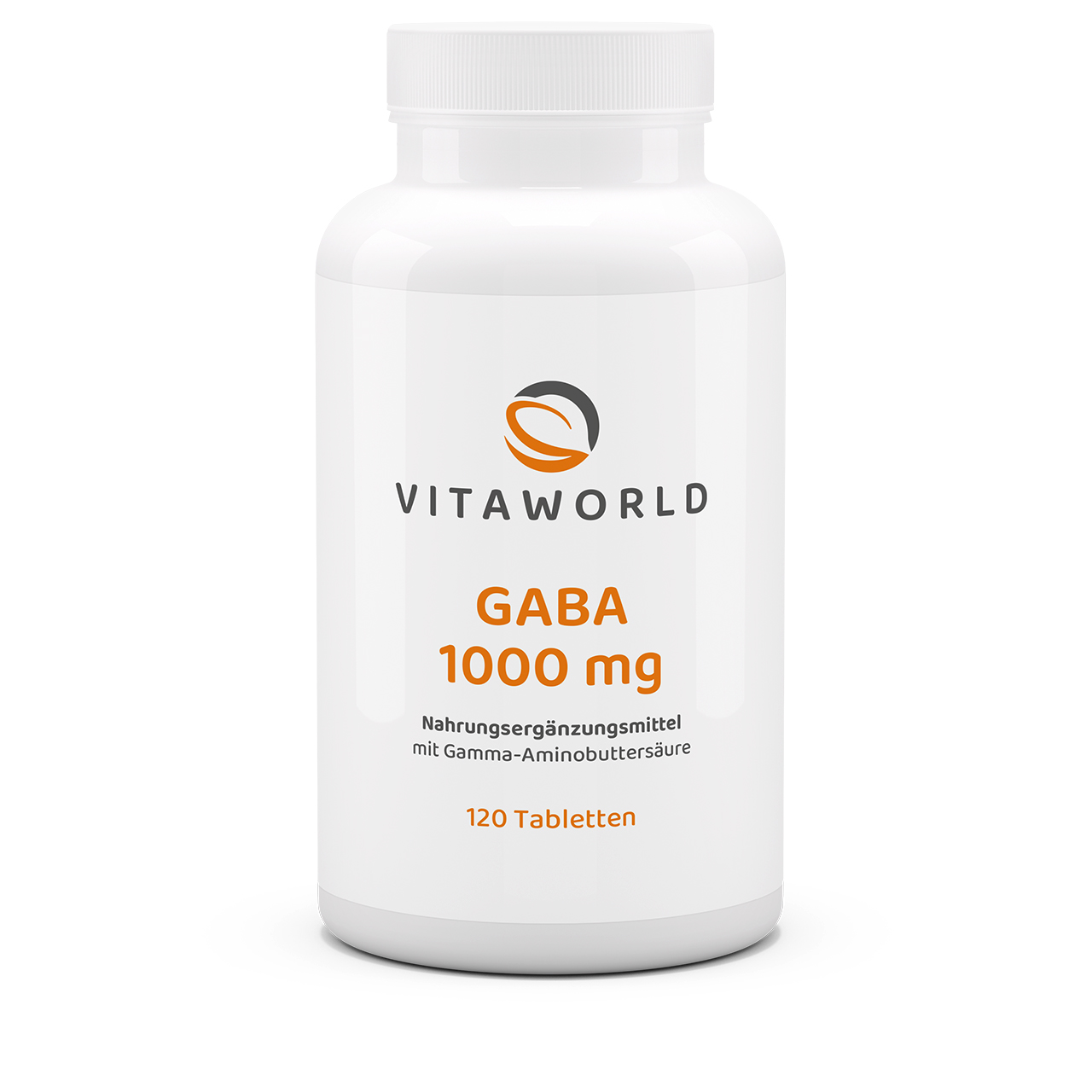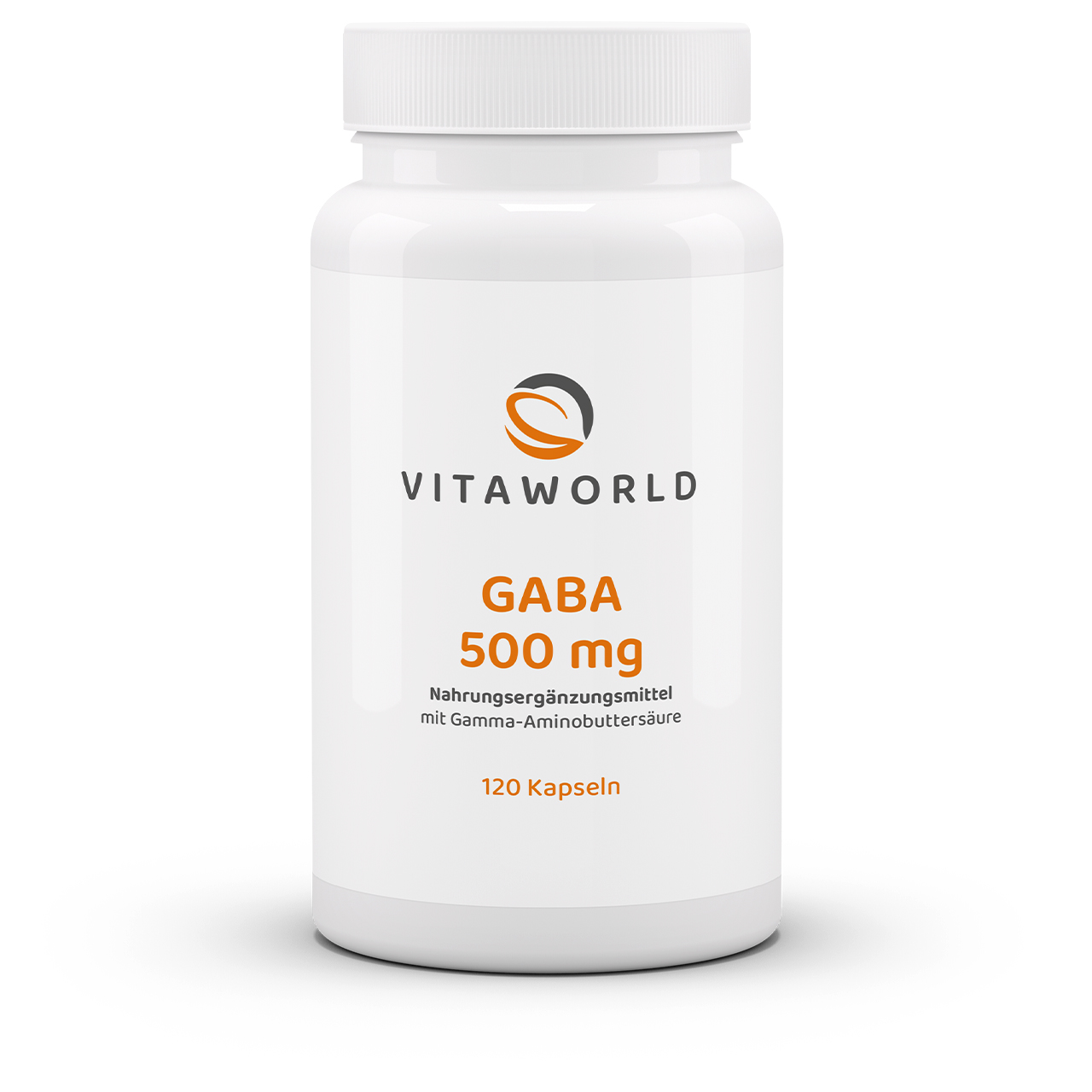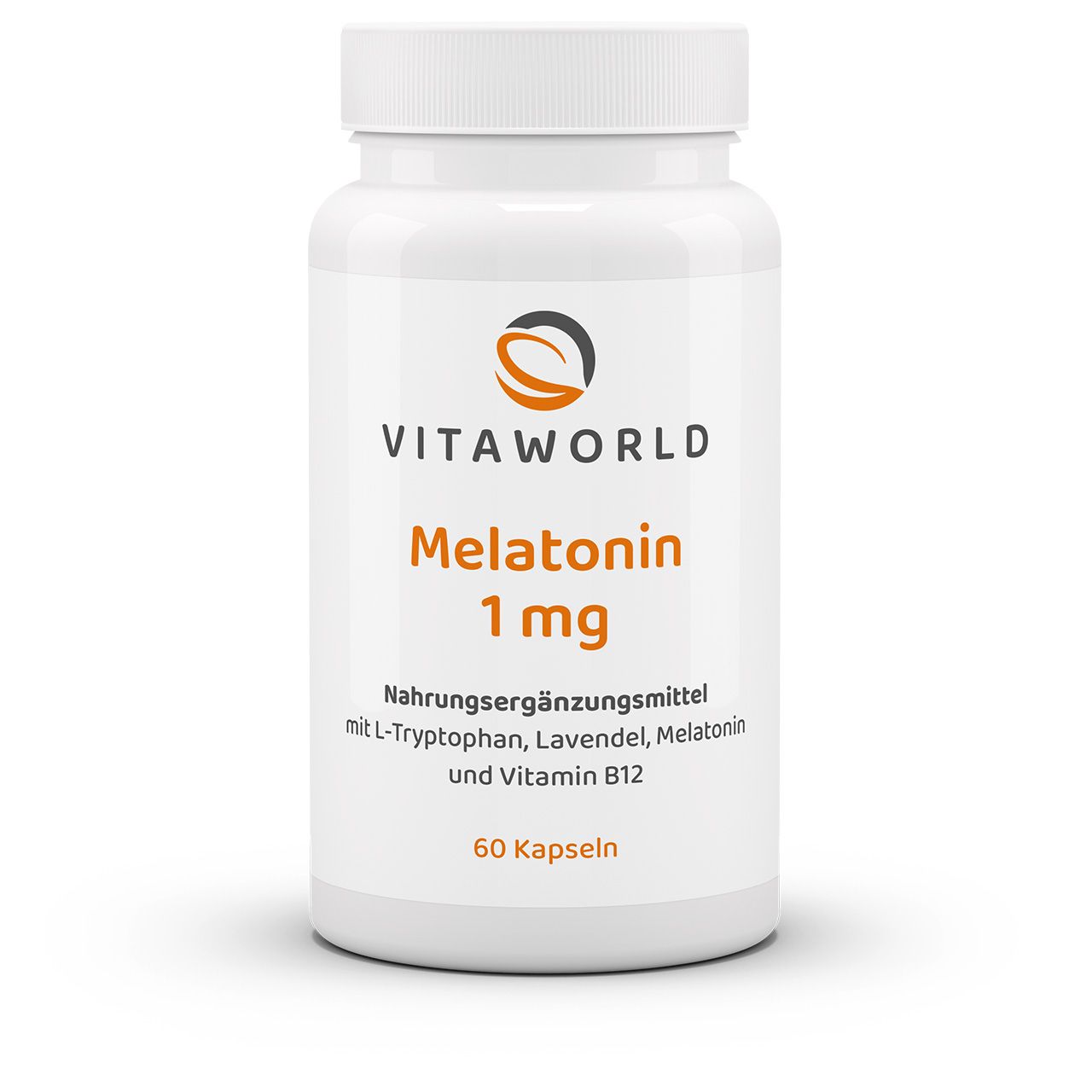Filter products
Relaxation
In the hustle and bustle of everyday life, moments of relaxation are worth their weight in gold. But we all know that these moments of inner peace can be rare. So make a conscious decision to take this important time for yourself. How about yoga, meditation or breathing exercises? Exercise can also help you become more balanced and relaxed. Be open and find your own way to promote physical and mental serenity. It is a good idea to make relaxation an integral part of your daily life.

- For moments of calm in everyday life – with ashwagandha and rose root
- capsules with high-quality KSM-66® extract and valuable micronutrients
- B vitamins specifically supplement the herbal complex
Content: 0.0261 Kilogramm (€877.39 / 1 Kilogramm)

- For relaxed moments in everyday life – high dose of 1000 mg GABA per tablet
- Naturally occurring messenger substance – GABA is an inhibitory neurotransmitter involved in natural balancing processes
- naturally produced in the body – formed from glutamic acid and a proven component of daily balance
Content: 0.146 Kilogramm (€150.00 / 1 Kilogramm)

- For relaxed moments in everyday life – high dose of 500 mg GABA per capsule
- Naturally occurring messenger substance – GABA is an inhibitory neurotransmitter involved in natural balancing processes
- Naturally produced in the body – formed from glutamic acid and a proven component of daily balance
Content: 0.0732 Kilogramm (€217.21 / 1 Kilogramm)

- High-dose natural L-tryptophan
- Essential component of a protein-rich diet – versatile
- Ideal for active days and relaxed evenings – natural and conscious supplementation
Content: 0.1454 Kilogramm (€171.25 / 1 Kilogramm)

- 500 mg pure L-tryptophan per capsule – targeted supplement for everyday use
- Essential component of a protein-rich diet – versatile
- Ideal for active days and relaxed evenings – natural and conscious supplement
Content: 0.037 Kilogramm (€348.65 / 1 Kilogramm)

- 500 mg pure L-tryptophan per capsule – targeted supplement for everyday use
- Essential component of a protein-rich diet – versatile
- Ideal for active days and relaxed evenings – natural and conscious supplement
Content: 0.055 Kilogramm (€325.45 / 1 Kilogramm)

- 300 mg pure magnesium per tablet – high dose & effective
- Contributes to normal muscle function and healthy bones
- For active athletes & anyone with increased requirements – reliable supply
Content: 0.124 Kilogramm (€71.77 / 1 Kilogramm)

- 400 mg magnesium per capsule – extra high dose for your daily intake
- Contributes to normal muscle and nerve function
- Ideal for increased requirements – e.g. during sport, stress or an unbalanced diet
Content: 0.0944 Kilogramm (€104.87 / 1 Kilogramm)

- 1 mg melatonin – helps reduce the time it takes to fall asleep
- With 200 mg L-tryptophan & 50 mg lavender extract – carefully combined
- Vitamin B12 contributes to normal psychological function
Content: 0.027 Kilogramm (€477.78 / 1 Kilogramm)

- Contains 500 mg of high-quality rose root extract with 15 mg of rosavin and 5 mg of salidroside per capsule
- Traditionally valued for inner strength and calmness – without any agitation
- From the root and rhizome of Rhodiola rosea – known for its delicate rose scent
Content: 0.0732 Kilogramm (€408.47 / 1 Kilogramm)

- Contains 500 mg of high-quality rose root extract with 15 mg of rosavin and 5 mg of salidroside per capsule
- Traditionally valued for inner strength and calmness – without any agitation
- From the root and rhizome of Rhodiola rosea – known for its delicate rose scent.
Content: 0.219 Kilogramm (€319.02 / 1.014 Kilogramm)

- Premium saffron extract from Castilla-La Mancha – sustainably processed & highly bioavailable
- Magnesium & B12 support nerves & mental well-being
- More than just a spice – saffron, valued for centuries
Content: 0.0324 Kilogramm (€614.20 / 1 Kilogramm)
